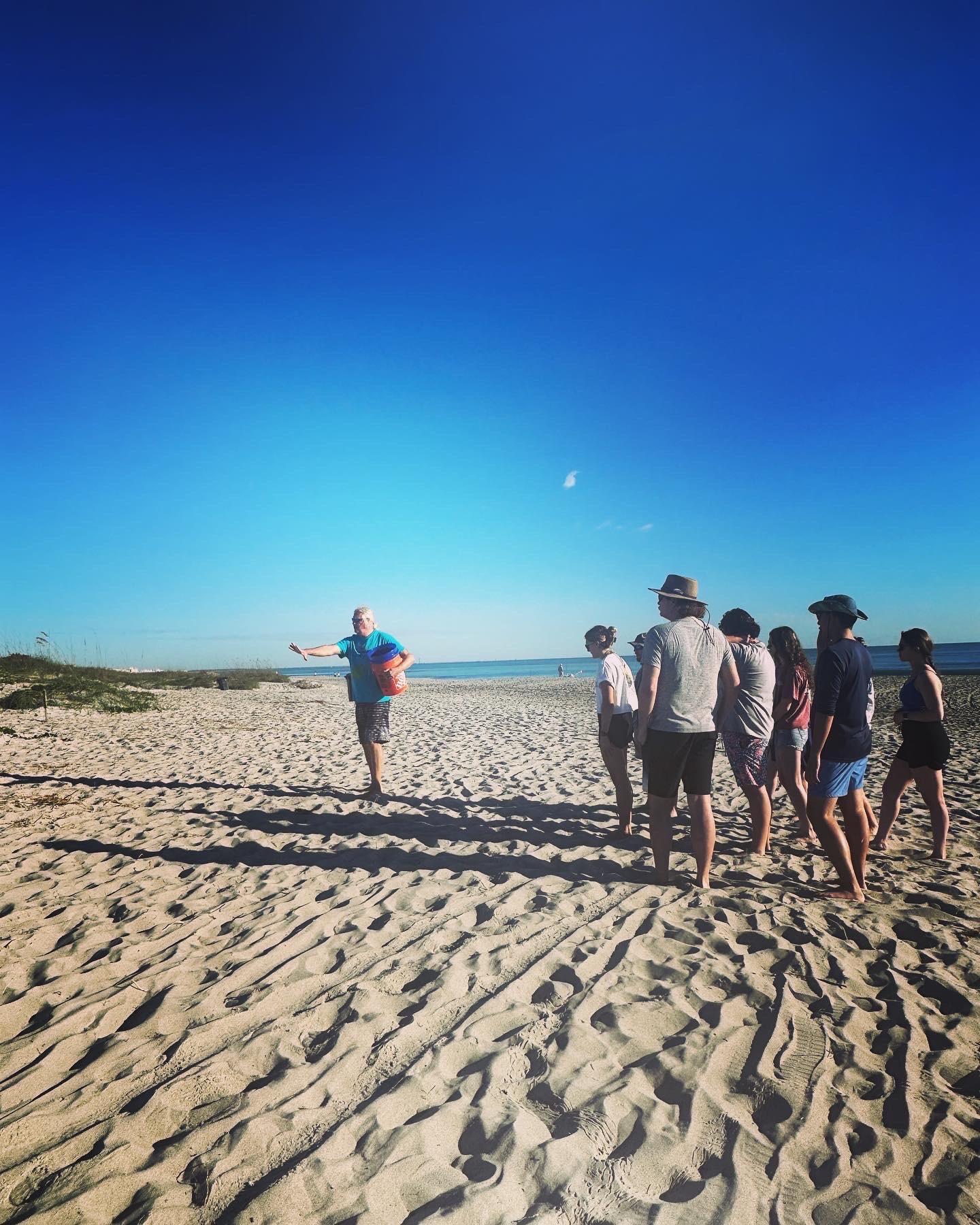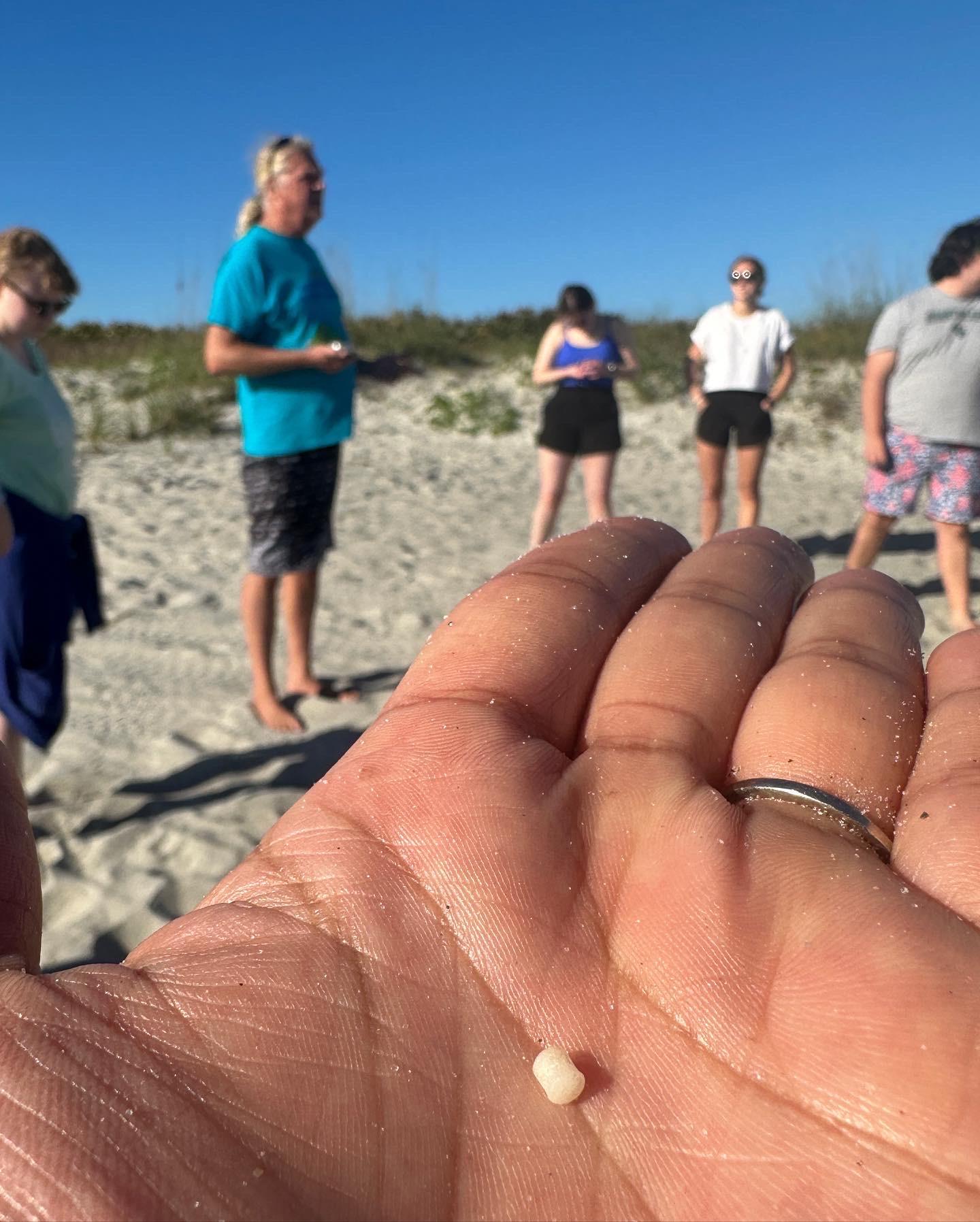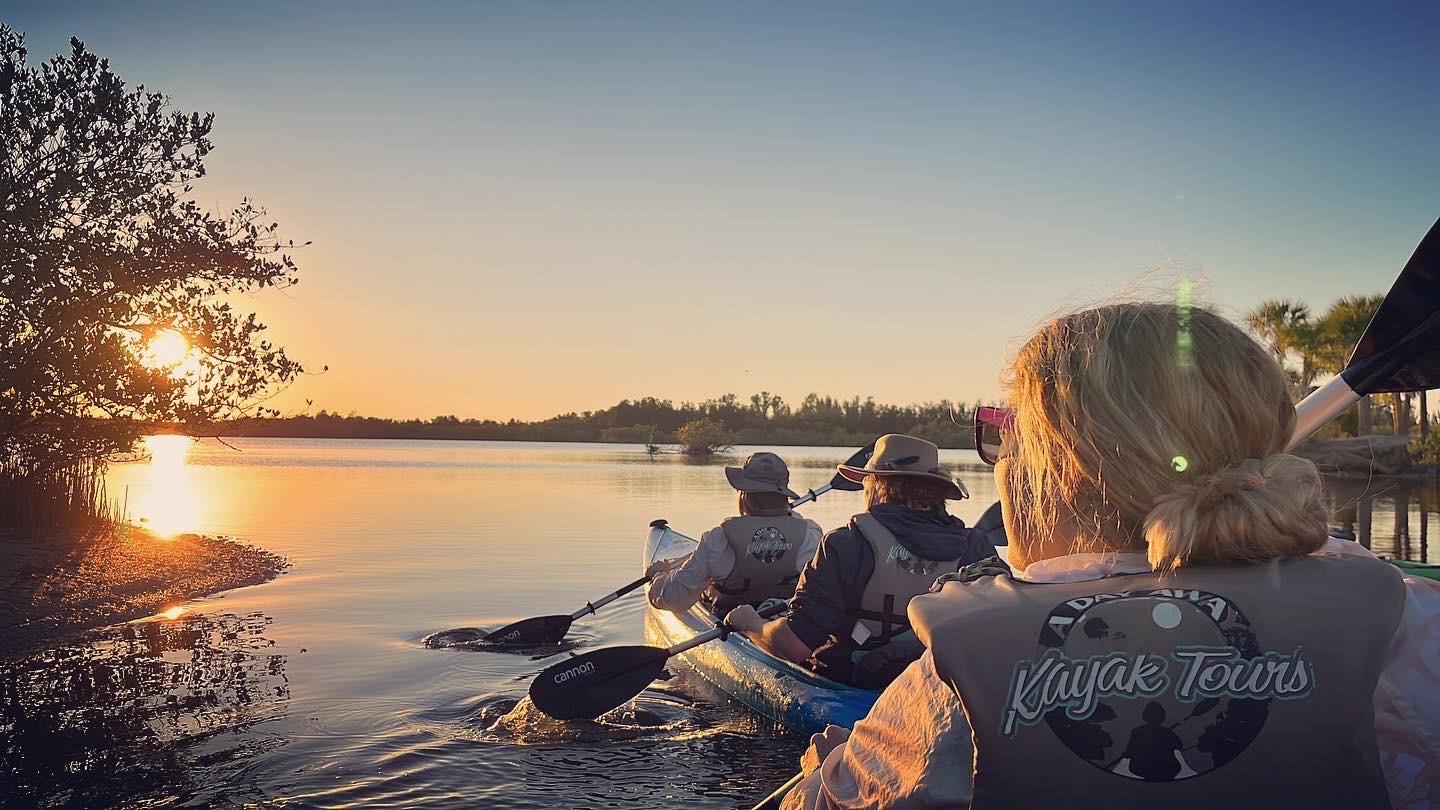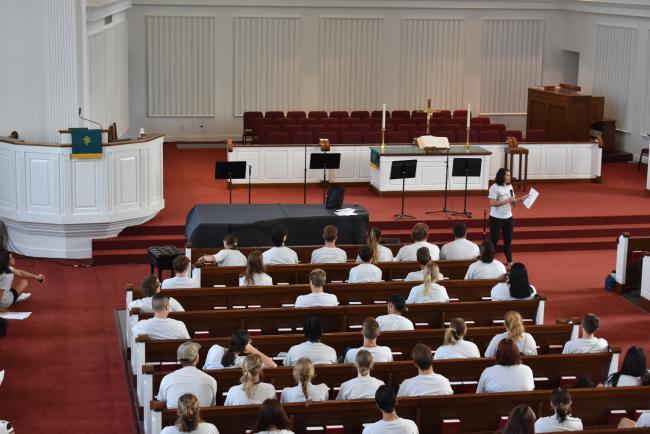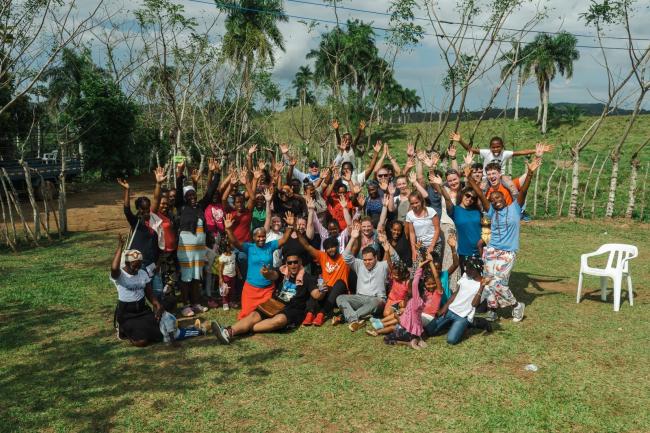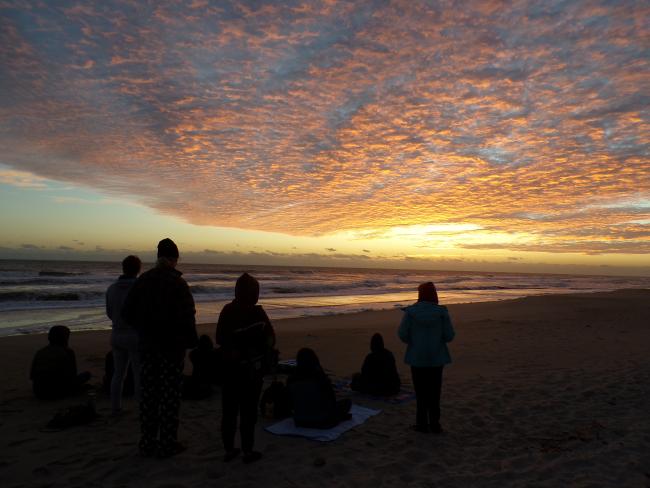Eight Waynesburg University students spent their winter break participating in service projects at A Rocha USA in Titusville, Florida, from Jan. 7 through 14. Dr. Christian Hayes, assistant professor of biology, and Dr. Marissa Mendoza, assistant professor of psychology, served as the trip leaders.
Working with A Rocha, we collected nurdles on multiple beaches that allows research to be conducted in studying the output of microplastics humans put into the ocean and how this severely affects all parts of the marine food chain.”
A Rocha is an international Christian organization focused on biodiversity conservation. Through their conservation-focused programs and projects, A Rocha uses scientific research and environmental education to aid in the protection of vulnerable habitats and species.
With the help of A Rocha, students had an opportunity to study marine conservation and the effects of microplastic pollution on the environment through hands-on activities and projects.
“On this trip, WU students helped A Rocha with a number of marine service projects, including picking up plastic along beaches; conducting multiple nurdle hunts; collecting mole crabs at local beaches to study the effects of microplastic and its influence on the food web; and running two BioBlitz’s in which students used an app called INaturalist to identify different plant and animal species at multiple locations to help local property owners better understand their own property and protect local biodiversity,” explained Dr. Hayes.
The data gathered and analyzed by A Rocha helps to determine the spread of industry-produced pollution. By examining the beach for the presence of certain waste particles such as nurdles (raw, plastic pellets produced by plastic companies), they are better able to observe the impact on the environment.
“Working with A Rocha, we collected Nurdles on multiple beaches that allows research to be conducted in studying the output of microplastics humans put into the ocean and how this severely affects all parts of the marine food chain,” said senior marine biology major Alyssa King. “We collected plastic, big and small, and we collected mole crabs on the stormiest day, waist-deep in waves with sieves, in order to examine microplastic ingestion from the bottom of the food chain.”
What students found during their data collection projects was alarming in terms of the amount of plastic waste they found on the beaches and in wildlife inhabitants.
“Something I learned that was eye opening was the absurd amount of plastic that is entering our food chain by allowing the plastics we use to enter into nature,” said junior biology major Madison McMonagle. “For example, there are not only plastic bottles and bags in the ocean (and all of nature) that are harmful to the environment and the beings in it, but there are microplastics and nurdles that we often miss because of their minuscule size. These plastics are consumed by animals that either enter our food chain or become so filled with plastics that they cannot survive. This calls for serious change, but there is a lack of awareness of the true damage plastics can cause.”
Something I learned that was eye opening was the absurd amount of plastic that is entering our food chain by allowing the plastics we use to enter into nature.”
By the end of the trip, students gained a strong awareness of the impact caused by microplastics to wildlife, the environment and human health. They also learned how to identify and incorporate potential solutions to the problems faced by this pollution to better the communities around them.
The opportunity to serve at a Christian organization like A Rocha also provided students the ability to reflect on the work they were completing in connection to their faith and God’s creations.
“I was most impacted by the opportunities we had taken to pray and root ourselves in the Lord before each day,” added McMonagle. “When we traveled to new places or did something for the environment, we were sure to pray and acknowledge every aspect of the environment God had been so intentional with. We took a moment to close our eyes, smell the air, taste the water, listen to the waves crashing, look to see what was around us and finally talk to God about it.”
For King, these daily reflections were also an important part of her journey.
“One of my many highlights of this trip was how we spent just about every morning on the water in silence, using these moments to connect with the ocean and with God, using our senses to be intentional and receptive to both Him and His Creation,” said King.
Service trips, like the one to A Rocha, not only serve to educate students on issues faced around the globe and the difference they can make through their outreach, these trips also offer unforgettable experiences that go beyond a classroom setting.
One of those experiences happened on the group’s last day. Dr. Hayes, Dr. Mendoza and students got up early to watch the sunrise on the beach before heading home. What threatened to become a dreary morning, quickly became a key memory to those who witnessed that sunrise.
“It was starting to drizzle and the clouds threatened to ruin the moment. Instead, however, the clouds served as an incredible backdrop to the most incredible sunrise I have ever seen,” recalled Dr. Hayes. “As the sun started to creep above the horizon, you could see the light bouncing off the bottoms of the clouds in a glorious display. We all sat there in silence, and as we watched, a flock of shore birds flew by and sang their greeting to the morning. Then, as we turned around to depart, we looked and saw a beautiful rainbow above our heads lighting up the sky. It was truly spectacular, and a moment I will never forget.”
Participating students included:
- Eric Burcham, a sophomore forensic accounting major from Washington, Pennsylvania
- Audrey Dennis, a freshman marine biology major from Sistersville, West Virginia
- Andrea Flowers, a sophomore marine biology major from Hampton, Virginia
- Jesse Hazlett, a junior environmental science major from Youngwood, Pennsylvania
- Alyssa King, a senior marine biology major from Tonawanda, New York
- Isabella McElhany, a sophomore marine biology major from Eighty Four, Pennsylvania
- Madison McMonagle, a junior biology major from Pittsburgh, Pennsylvania
- Justin North, a junior marine biology major from Plum, Pennsylvania
